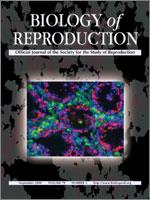A gradual alteration in the mechanisms underlying reproduction and fertility characterizes the aging process in human females. These changes culminate in menopause, conventionally defined as a cessation of menstrual cycles that marks the end of reproductive capacity. In fact, a central and defining event in menopause is the discontinuation of ovulation, which is correlated with a number of structural and functional changes in the reproductive axis. Despite several decades of research, a degree of uncertainty remains as to whether nonhuman primates undergo menopause, and whether they are suitable models of human reproductive senescence. We review some of the controversies that have clouded our understanding of reproductive aging in nonhuman primates, including issues of definition, timing, comparability of data from wild versus captive populations, and cross-species comparisons. The existing data support the view that menopause occurs in a number of primate species and is not unique to humans.
How to translate text using browser tools
1 September 2008
Menopause in Nonhuman Primates?
Margaret L. Walker,
James G. Herndon
ACCESS THE FULL ARTICLE

Biology of Reproduction
Vol. 79 • No. 3
September 2008
Vol. 79 • No. 3
September 2008




